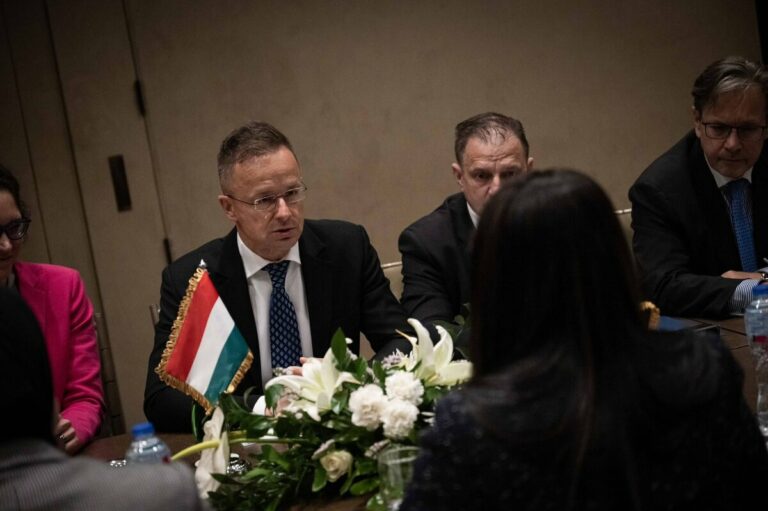visit
Hungary’s parliamentary speaker strengthens ties with Egypt in official talks

Trump Jr in Budapest: Hungary is like heaven

Hungarian international spokesman: Qatar protecting the values of hunting

President Trump’s son visits Budapest, attends multiple private events

PM Orbán holds talks with speaker of Austria’s National Council Rosenkranz

Brussels wants puppet government in Hungary, says Hungarian government

Cyprus FM Constantinos Kombos held talks in Budapest

Hungarian government: Hungary supports North Macedonia EU integration

Hungary may participate in the celebrations marking the 250th anniversary of the US

Hungarian FM Szijjártó meets Egyptian FM in Cairo

Netanyahu in Budapest: Peace needs a strong army and strong economy

Orbán with Netanyahu: Hungary is an island of freedom

Netanyahu in Budapest: half of the city will be paralysed in the following days – here are the closures

Here’s why neither Netanyahu nor Putin will be arrested in Hungary

Israeli PM Netanyahu’s four-day visit to Budapest: major traffic restrictions, ICC arrest warrant

North Macedonian foreign minister Timcho Mucunski held talks in Hungary

FM Szijjártó praised Türkiye for their peace efforts

PHOTOS: Polish and Hungarian presidents celebrated the Day of Hungarian-Polish friendship in Kaposvár





 ZH
ZH IT
IT DE
DE HR
HR NL
NL FR
FR JA
JA RO
RO RU
RU ES
ES TR
TR
